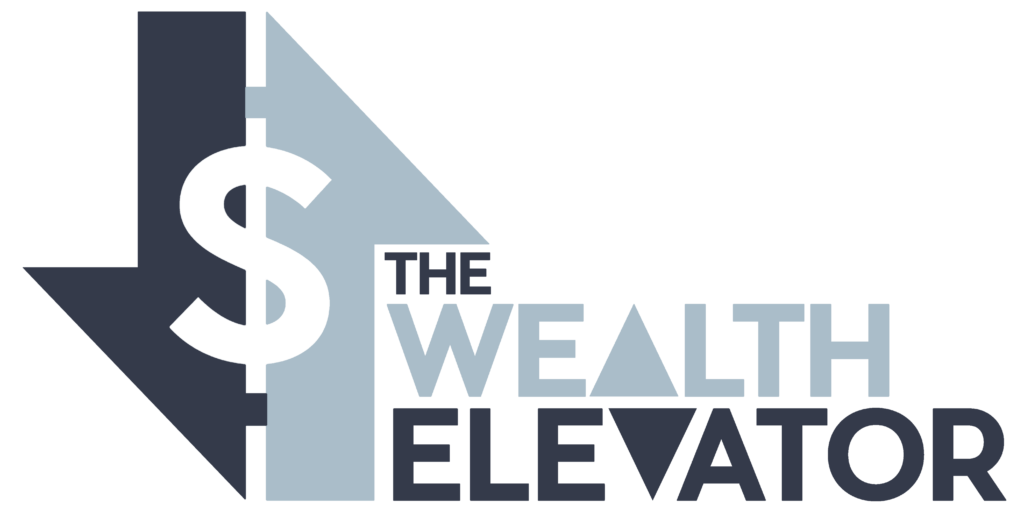


Financial Freedom
for Lawyers
The Legal Labyrinth
Notes from a lawyer learning to see beyond the maze:
Imbued with the dream of becoming a lawyer — upholding the law, arguing in front of a judge and jury, defending the underserved or mastering the art of the deal — you head to law school and never look back. Three years and over $150,000 in student loans later, you graduate, eager to apply your newly minted legal mind. You pass the bar and proudly step into your new job at a law firm, corporate legal department, or government office. But unbeknownst to you, despite your juris doctorate degree and “Esq.” title, you’ve just entered the same rat race as the majority of the U.S. workforce.
I know all this because I’ve been there. After graduating from law school, I was lucky enough to find a job at a “biglaw” firm where I practiced corporate law in the mergers and acquisitions field. That meant many 80+ hour weeks representing companies and private equity firms in the fast-paced, high pressure world of buying and selling companies. My colleagues in litigation practices were subject to less ups and downs, but were still regularly cranking out 60+ hour weeks under intense deadlines and filings. We all got there by employing the same mentality we used all through our lives — work hard, perform well to achieve the goal at hand and collect applicable accolades. What I realized when I got to the “top” of the legal profession, however, was that the view wasn’t so pretty.
The Golden Ticket?
Landing a job at a top ranked biglaw firm, at first, appears to be a golden ticket to higher compensation, benefits, opportunities and ultimately, a better life. Biglaw firms were seen as the most “prestigious” in the legal world for handling the most complex work and servicing even more illustrious clients – big pharma, tech giants and oil companies. The associates and partners are paid top dollar in return for their expertise, ability and availability.
For instance, right out of law school in 2018, a first year biglaw associate is paid $190,000 as base salary and is eligible for a $15,000 annual bonus. For the next eight years, the base salary and annual bonus at most biglaw firms increases in a lock-step fashion according to the market-setting Cravath pay scale. Beyond the compensation, top-ranked law firms boast taglines of “unparalleled legal training” and the opportunity to “work with like-minded intellectuals” and “sophisticated clients” on “diverse and challenging matters.” For these reasons, even after a long hard week where you may be subjected to extreme stress, no sleep and eighty billable hours (not counting the ten non-billable hours of face time at the office), you are supposed to put your head down, keep going and receive that big fat paycheck every other week. After all, it’s worth it, right?

Why We Do What We Do
A handful of lawyers enjoy the practice of biglaw and its intellectual rigor — the litigator’s ability to creatively craft a brief to sway the court’s decision (or checkmate the opposing side into settlement) or the dealmaker’s negotiating savvy that secures the client’s acquisition of a promising portfolio company. These select few are the ones willing to grind it out for years into a lucrative partnership with the firm.
But the vast majority of biglaw attorneys are young professionals who admit they are not particularly interested in partnership and are only looking to gain some experience and training to parlay into an in-house position in a company’s legal department or a smaller firm, where they will take a substantial paycut in return for a more balanced lifestyle.
Nearly all biglaw attorneys share one thing in common: a $150,000 plus student loan burden that makes a high-paying six figure job that much more appetizing. Lawyers are known for their risk aversion, and many think that this debt is a risk in the sense of impairing their ability to dump their earnings into savings and their 401k. As a result, it was common for colleagues to talk about surviving in the trenches of biglaw long enough to eliminate their student debt.
Finally, there is the phenomenon of the golden handcuffs. Law firm associates get used to the high income and adjust their lifestyles accordingly. As a result, they believe themselves to be stuck in their jobs. Of course, they don’t realize along the way how much money they are wasting to make themselves “happy” — buying the nice watches, a few bottles of wine each week to unwind at a fancy dinner, the new car — and that they are holding the keys to the handcuffs that keep them at their job and lavish lifestyles.

At What Cost?
Time = Money
Being a lawyer at a firm is the epitome of trading time for money. Your working life (and therefore the majority of your life) become ruled by the billable hour, and you start to see your life measured in .25 hour increments.
Associates are expected to meet certain billable hours (i.e., hours actually billed on client matters) in order to be eligible to receive the annual bonus. With the billable hour as a metric, your value as an attorney is measured by how productive you are and how efficiently and precisely you can churn out work product per hour. These billable hours are the firm’s source of revenue, and it is not uncommon to have a billable hour requirement of 2,000 hours per year. 2,000 hours equates to a roughly 40 hour workweek. Not bad right? But that does not include lunch, bathroom and water breaks, and any minute away from your desk chatting with a friend or asking your secretary to file away old matters.
It was not uncommon to work a 9 a.m. to 8 p.m. work day only to see my billable time for the day clocked in at a measly 7 hours. Sometimes, there was not even enough work to support that, and during these slow times, it was not uncommon to bill 4 hours or less even though I was in the office the entire day. Finally, not having steady work flow meant oftentimes getting reacquainted with matters that you had not seen for 3 weeks or so, and feeling pressured into writing off the first hour you spend getting your bearings so as to not look slow or inefficient.
This “billing” pressure — having partners pressure you into billing more hours to pad their pockets, but also to be conscious about keeping the client’s bill down to create the image of efficiency — takes a toll on associates and even partners. Even at the most elite firms, the most senior partners who have worked 60-80 hour weeks for over 20 years earn at most in the low seven figures. Unless you are the plaintiff attorney taking down big tobacco or pharma, there is no such thing as “the sky is the limit” in the legal profession.

Serving Two Masters
Associates working at a law firm really have two clients: the partners they are working for and the clients who the firm is working for. Both partners and clients expect that associates be available at all hours of the day, 24/7. For instance, a client could email regarding an emergency before the break of dawn, but the associate is still expected to give a timely response (within the hour). Similarly, a partner could give an associate an assignment before he heads home for the day and expect to see the work product before the next morning.
There are no boundaries on when partners and clients can expect an associate to work. It is even more frustrating when you realize that the client bossing you and your partner around is a 25 year-old who stepped into his current gig after working at an investment bank for two years after undergrad. He’s the one who dictates your weekend plans by needing an update on the deal memo and other docs “immediately” so he can let his own boss know that his trip to Vegas won’t be a disruption since the lawyers will still be turning drafts all weekend.


A Thankless Profession
Starting out as a young associate, one expects to be inundated with the trivial tasks, such as due diligence of companies’ customer contracts in a buy-side deal or doc review to find the smoking gun. One would think that the more senior an associate becomes in a law firm, the more control they would have over their schedule, perhaps by delegating work to younger associates.
However, it’s the opposite. The more senior an associate, the more responsibilities he or she will have and oftentimes, it is too complex of a matter to delegate to younger associate. Partners’ responsibilities and commitments between doing the work for multiple important clients to business development (which does not count toward their own billable hour requirements) have it even worse and are often working earlier in the morning and late into the night.
One particular memory I have from my time working in biglaw was a conversation I had with a partner on the eve of a transaction’s closing. It was about 3 a.m. Friday morning at the end of a week of late nights, and we were leaving to get a couple hours of sleep before an 8 a.m. closing call. He said, “You know how we lawyers all think we are the smartest people in the room? How when a business guy says something way off, we roll our eyes and figure we’ll have to get it right in the contract and negotiation? Well, we’re actually the stupid ones. We’re in the wrong profession. That business guy went to bed early fully expecting that we’ll get this thing done. He’s getting paid big tomorrow morning and may not ever have to work again. And we’re here until 3 in the morning and all we’ll get is a thank you and a bottle of wine at best. But if we mess it up, we’re gonna have a lot to lose. And this is only one of the 3 deals I have closing tomorrow.” That conversation stuck with me.
Granted, he’ll get a share of the legal bill for the deal, but here was this well-respected, well-paid partner in his late 40s admitting to me that he made a career and lifestyle mistake. He was out of shape and always looked stressed out. The worst part was that he was sticking to this career with no end in sight because his attitude was that he made his bed and he just has to lay in it. I knew definitively that I never wanted to be like him, at the peak of my career, telling a younger colleague that someone else out there was living the dream while I was toiling away, trading my time for money.
Life on the Run
Because associates are expected to be available 24/7 and to meet the billable hour requirements as mentioned above, it is nearly impossible to find work/life balance. It was normal for associates to be working in their office late into the night everyday and on weekends and holidays. I used to joke with colleagues that “of course I’ll be in on Monday, it’s Labor Day after all!” Clients like to take their holidays, which meant that you would often be stuck with something as they head out the door.
Your exercise and eating habits also fall by the wayside. And even when I was able to drag myself to the gym on mornings with only 6 hours of sleep, there was always the stress. Some of my friends refused to wake up early for the gym because that meant another hour of consciousness where you could be subject to an email that would ruin your day. Biglaw is notorious for being able to take a normal working day from a 2 out of 10 stress level to a 10 out of 10 client emergency, and you never know when the next fire will need to be put out. I’ve counted more than five of my own personal biglaw acquaintances who fell prey to stress manifesting in the form of severe illness.
Countless birthdays, Thanksgivings and family get-togethers were either missed or spent in the other room cursing under my breath as I tried to turn a document before an artificial deadline. I would make weekend plans while at dinner on a Friday night, only to get an email or phone call later that evening letting me know I had to be in the office all weekend. Breaking plans with loved ones and friends was one of the most soul-crushing feelings about legal practice, as you knew that you were directly affecting their lives, not just your own.
Ensuing stints of depression were not uncommon. And you know it doesn’t get better when the partners and more senior associates are in on weekends earlier than you and there well into the night. Sometimes my fellow associates and I joke that maybe these partners secretly hate their families, because they’re always at the office. But sadly, the truth is that they have convinced themselves that this is the only way to make a living, and therefore trapped themselves for good.
The lack of your ability to have a social life, take control of your health or maintain your relationships gives the biglaw attorney the sense of playing Russian roulette, but instead of a “bang,” you dread the “ding” of your email on a Friday night. There was always the sense of looking over your shoulder, because sooner or later, biglaw was going to get you.

Learning to Love the Law After Drinking the Kool-Aid
I knew pretty quickly that I could never sacrifice my family life to the needs of my clients to such an extreme, and so I began to look around for a way out of biglaw and the life of a lawyer in general. On my long commutes to work, I stumbled on investing podcasts, and then real estate specific podcasts (even this light hearted on with this dude and his ukulele), and although I did not have a way out mapped yet, the one catalyst on interviews that everyone mentioned was, of course, Rich Dad Poor Dad by Robert Kiyosaki. Once I read that and his Cash Flow Quadrant, I knew that the universe was telling me that there had to be another way to live a meaningful life, and that it was passive income and cash flow investing.
Of course, it was nearly impossible to take action, since biglaw was an all-encompassing job. So I tried to learn what I could about the world of passive real estate investing so that when the time came where I had enough control over my life to start investing, I could be ready to pounce.
After listening to hundreds of podcast episodes and reading dozens of books on the subject, it became clear that to escape the rat race, leverage was an important factor. Not just in the sense of using debt to acquire cash flowing properties, but leveraging your time and your talents. So that begged the question: how can a lawyer’s skills and resources be parlayed into real estate investing?
Lawyers generally have higher incomes due to their advanced degrees. As mentioned earlier, biglaw associates straight out of law school make nearly $200,000.Outside of biglaw, even government lawyers can make six figures. This means quick accumulation of investment capital through earned income (W-2 wages). With the right knowledge on controlling finances, a lawyer can save well into five-figure portions of their salary per year, which can allow for the rapid growth of a cash-flowing asset portfolio. In addition, a lawyer’s personal network will invariably include many similarly situated legal professionals with disposable income for investing, which may prove useful for raising capital and attracting other investors to deals.
The skillset of a lawyer is also applicable to passive real estate investing. Lawyers have very strong reading comprehension, writing, research and negotiating skills. Real estate property analysis can be learned, but the ability to spot issues and inconsistencies and to tackle complexities is what lawyers are trained for, and this will inevitably come in handy when dealing with agreements involving your real estate investing (including term sheets, purchase and sale agreements and private placement memorandums). Due diligence is a familiar term of art for transactional attorneys, and similar principles apply in the real estate purchase context. Furthermore, managing more junior attorneys or specialists (especially in an M&A deal) is useful experience when applied to overseeing your own investment team of property managers, agents and other advisors.
Finally, a lawyer’s title carries a sense of professionalism and respect that translates well in the investing world. When I was a biglaw associate, sophisticated clients with 20 years of experience in investing often called me to ask me to explain a complex vesting mechanism or to handle the entire due diligence process in their purchase of a hundred million dollar company. Being a lawyer may bring some negative associations due to popular culture and general experience, such as being conniving, risk averse or not business minded, but by branding yourself as a business savvy and commercially-minded attorney trusted with great responsibilities in your W-2 job, you can stand apart with your less common background and skill set.

Planning the Escape
As a lawyer at a biglaw firm, I had little control over my life and free time. Eventually, after years of going through the grind, I was fortunate enough to land an in-house position, where I am generally on a 9 a.m. to 6 p.m. schedule. This was a crucial step that allowed me to devote more time and resources to passive real estate investing.
In order to get started on escaping the maze of a W-2 legal job and the rat race, an action plan is needed. Most important is an investment in one’s financial education. Start with The Wealth Elevator, Rich Dad Poor Dad, and Cash Flow Quadrant to drink the koolaid (or Wealth Elevator Latte!) and indoctrinate yourself into the paradigm of being financially free and having real wealth. Listen to podcasts such as the Wealth Elevator podcast, and read books on real estate investing.
Then, after a few books and podcasts to get yourself comfortable, it is time to take action. Do not get caught up in looking for the next shiny object that will be the magic pill to get out of the matrix. Financial independence and escaping the rat race takes time, and you should not be distracted by what others have done to amass total wealth if their situation is much different from yours.
When observing the stories of other W-2 income earners and how they have mapped out their escape, one thing became clear: the investing must be passive, and intentional efforts and actions have to be made towards pursuing even those passive investments. Not to say that quitting your legal job now and diving into real estate or other investments cannot be done, but just realize what it is you’re trying to achieve. If it is financial independence and escaping your rat race job, then focus on attaining passive income that will cover your expenses, and then replace your salary. If you’re looking to get out of the law by jumping into flipping or wholesaling real estate, just realize that you’re just doing a career switch into another active endeavor and that you are not achieving financial independence in that way until you have a passive income stream from your investments.
Like Plato in the Myth of the Cave or Neo in the Matrix, the paradigm shift is the most important first step in seeing the truth. Without it, we are just highly educated esquires blindly fumbling through the corporate ladder or firm hierarchy until we reach 59 ½ years to collect our 401(k) payments. I am lucky enough to have gotten through the first level of the maze of the legal profession that is biglaw, where time is traded for dollars. I am now on my way in the second level, where the only way out is the accumulation of passive income. Many tell me that once I free myself of the day job or the need to collect a paycheck I will begin to ponder what else to do with my time and find difficulty to find fulfillment after.
Well, I welcome that first world problem!
If you’d like to learn more about how to escape, start here on your journey up the Wealth Elevator!

Coaching Calls
Curious on how you can pay 11% in overall tax rate as an lawyer?
Through real estate investing, I have these tax benefits.
This is real! And yes, it works!
Your time and money is valuable – often over $500-1k an hour!
Many of you folks have some relationship with a financial planner, insurance agent, financial advisor, CPA, attorney, etc. When we take a holistic view of their planning, however, most are financially imbalanced and are unaware to handle their money. They are often exposed to unnecessary risks from embedded taxes, lawsuits, lifestyle factors, inefficient use of assets, etc. Failing to address all of these forces places downward pressure on their ability to build wealth.
Here, we bring together leading professionals in the fields of financial planning, taxation, law, practice management, succession planning, and client retention. This way, we can best assist our clients in addressing issues (money)and achieving optimal financial balance in their lives.
While doing dentistry, you help your patients achieve a healthy, brilliant smile then let the financial professional guide you in your investments, personal finance, and business finance.
begin your journey to financial freedom!
My name is Lane Kawaoka, and I hope my blog/podcast will help families realize the powerful wealth-building effects of real estate so they can spend their time on more important, instead of working long hours and worrying about their financial troubles. There are a lot of successful families with good jobs (teachers / engineers / programmers / finance) yet they struggle to make ends meet financially. It is their kiddos who ultimately get the short end of the stick. Being a Latch-Key Child growing up, both my parents had to work and I was left home alone after school to fiddle with my thumbs.
With Real Estate you are able to grow your wealth exponentially faster than the conventional 401K’s and stock investing, therefore you are able to escape the dogma of working 50+ hour weeks at a job that is unfulfilling. And if you are one of the lucky ones who happen to do what you enjoy… well good for you 😛
Money is not everything but it is important because it gives you the freedom to live life on your terms.
Annoyed by the bogus real estate education programs out there (that take money from people who don’t have it in the first place), I set out to make this free website to help other hard-working professionals, the shrinking middle-class. I hope to dispel the Wall-Street dogma of traditional wealth-building, and offer an alternative to “garbage” investments in the 401K/mutual funds that only make the insiders rich. We help the hard-working middle-class build real asset portfolios, by providing free investing education, podcasts, and networking, plus access to investment opportunities not offered to the general public.
“The true meaning of wealth is having the freedom to do what you want, when you want, and with whom you want.
Building cash flow via real estate is the simple part. The difficult part occurs after you are free financially to find your calling and fulfillment.
But that’s a great problem to have ;)”
excerpt from The One Thing That Changed Everything



